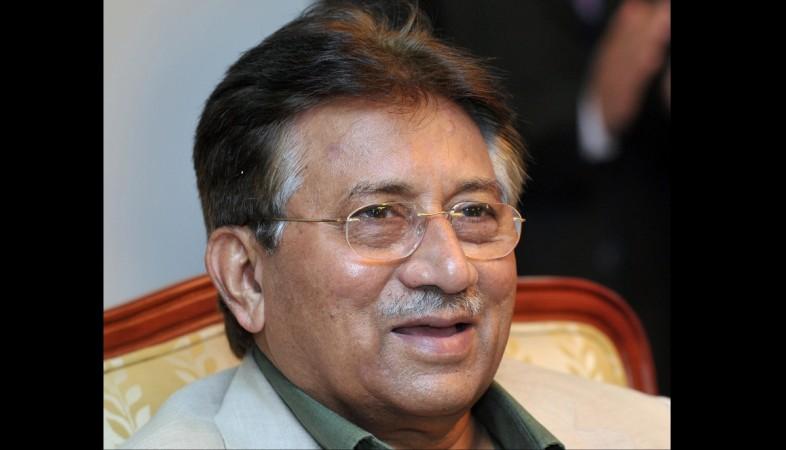
The wolves are smelling opportunity again. Within days after Nawaz Sharif proved to be third time unlucky to complete his full tenure as the prime minister of Pakistan, former military ruler of the country Pervez Musharraf found a welcome opportunity to open his mouth.
In an interview to BBC Urdu, the former president of Pakistan who had cut short Sharif's second tenure in office in 1999, hailed Pakistan's military rule saying it is the army which had always done the country good while the civilian governments have done just the opposite.
Musharraf, who leads a life in self-exile in the UK now, praised Pakistan's past military dictators saying it was them who had brought development for the country. He also asked what's the utility of holding elections and giving liberty to the people if the country doesn't see progress in the final count. He also opined that the country could not be "ruined" in order to save the constitution but one can "disregard" the constitution to save the people.
It may be mentioned here that Pakistan is set to complete 70 years since Independence this year and not a single civilian ruler has succeeded in completed a full tenure there. Sharif just less than a year short of creating history.
Musharraf's signs ominous for Pakistan
Musharraf's words are ominous signs for Pakistan. Though Sharif could not complete his term, Pakistan is set to see two consecutive civilian governments completing their terms without any interference from the military.
In fact, Musharraf himself also had to comply with democratic politics towards the end of his rule before he had to give up power in the late 2000s. Pakistan has seen a fairly stable governance after the end of the Musharraf era and his successors have not displayed any adventurism into governance.
The past few prime ministers have failed because of legal issues and not direct military coup, something which had happened in Pakistan quite a number of times in the past. Though it has been active in the politics, the army has not exhibited any open ambition to rule the country. On the contrary, Sharif's ouster makes many believe that Pakistan's economy could bear the brunt. It means in Pakistan, the significance of the stable civilian administration has started to grow roots.
![Pakistan Prime Minister Nawaz Sharif [Representational image] Nawaz Sharif,](https://data1.ibtimes.co.in/en/full/656595/nawaz-sharif.jpg?h=450&l=50&t=40)
Pakistan is fighting battles on many fronts today
Musharraf's words when Pakistan is at the crossroads will be dreaded by his own countrymen. Pakistan today has to fight on several fronts.
Its economy is not doing particularly great; its relations with neighbours other than India, too, are deteriorating and the United States, its traditional ally, is not much kind towards it at the moment. There are signs of dissatisfaction with the Chinese gaining influence on its soil and above all, terrorism is increasingly becoming a threat to the Pakistani state.
The military will have to take into account all these challenges if it aspires to run the country again but one suspects it will not readily jump into trouble. Wisdom lies instead on pushing the ball into the civilians' court and act behind the veils. The strengthening middle-class of Pakistan will also not like to see the uniform taking over the reins and make things difficult for it. The Pakistani military's role has certainly undergone a change in today's circumstances.
Musharraf fathoming troubled waters?
Musharraf, as an opportunist, is trying to fathom the water when the country has become leaderless but the former military dictator should keep in mind that it is the very democracy that he abhors gives leaders a second or even a third turn to return to prominence. Sharif is the burning example.
On the other hand, people like him to deny democracy a chance and yet uses it for their own convenience are dumped into the dustbin of history once their time ends. Musharraf is a dead man for his own country and rightly so. They do no favour to people but only serve their own interests.
Had Musharraf been a real leader of his country, he would have fought standing on his own soil. But he did not do so and fled because he knows he has no authority like a democratically elected leader. Pakistan needs to be careful at this juncture not to fall for misleading words uttered by evils like Musharraf or else, it will only push it back to the stone age.














